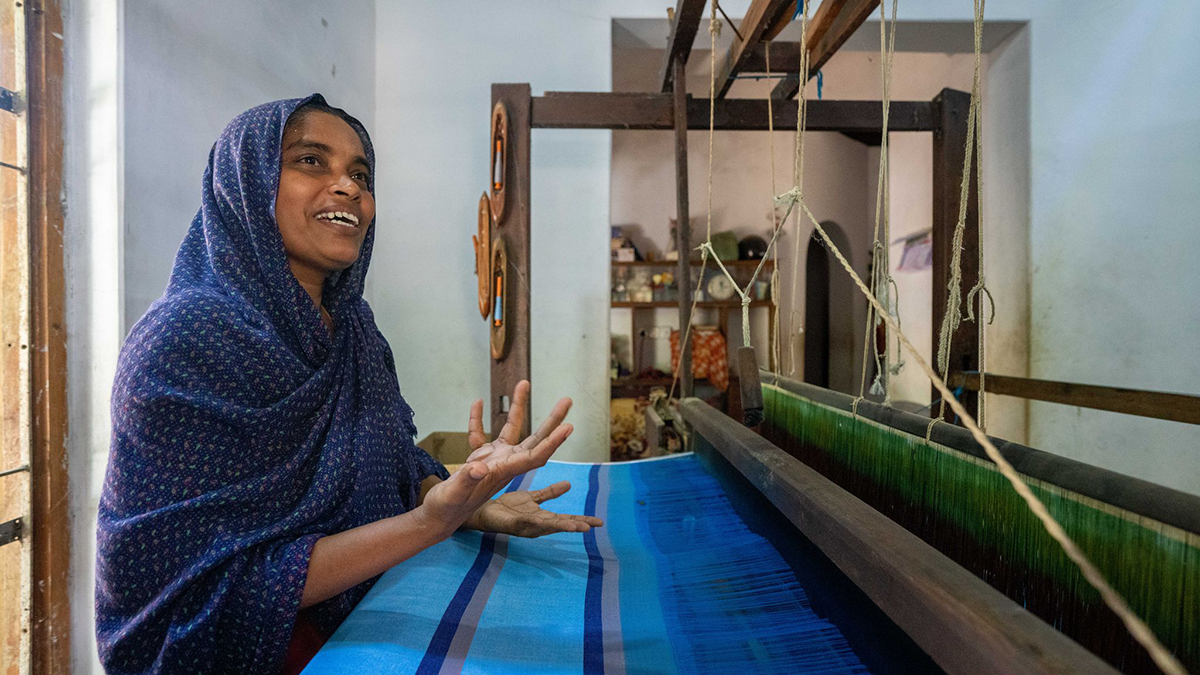Handlooms have long been a traditional industry in the Karaithivu area of the Eastern Province. However, with the advent of cheaply produced garments over the past few decades, this trade has slowly disappeared. “I remember watching my father and mother weaving cloth as a child” says Rizana wistfully, “it was a tradition passed along generations in my family”. Eventually, after her parents became too old, the business was discontinued, and their looms were sold.

Rizana’s shy demeanour hides a determined personality who had to find unlimited reserves of strength to overcome the challenges life has thrown at her. When her husband abandoned her thirteen years ago, she was left with two children and no means to support them. Handloom weaving was the only trade she knew, but that too only by sight. “I only had my memories as a child to go by, I had never woven anything myself, I had only ever seen it done”.

Undaunted by this, she bravely began to manufacture garments using a rented loom. Initially she had to work for the person renting the loom to her, and would only get paid a meager commission for the items she made. After participating in the INSPIRED program and obtaining a seed grant of two hundred thousand rupees, she was able to purchase her own loom. She is now fully independent.
The program helped her improve her business skills. “I learned to interact with people, be more extroverted,” she says happily. Rizana is today one of the most in-demand handloom weavers in the area. Through the program, her market base has spread far and wide. Some of her most frequent customers are Tamil and Sinhala friends she has made. “Many people from neighboring villages sought me out after they heard about my work through the program” she says. Her most in-demand products are sarongs; they are frequently sold out, especially just before major cultural festivals.




